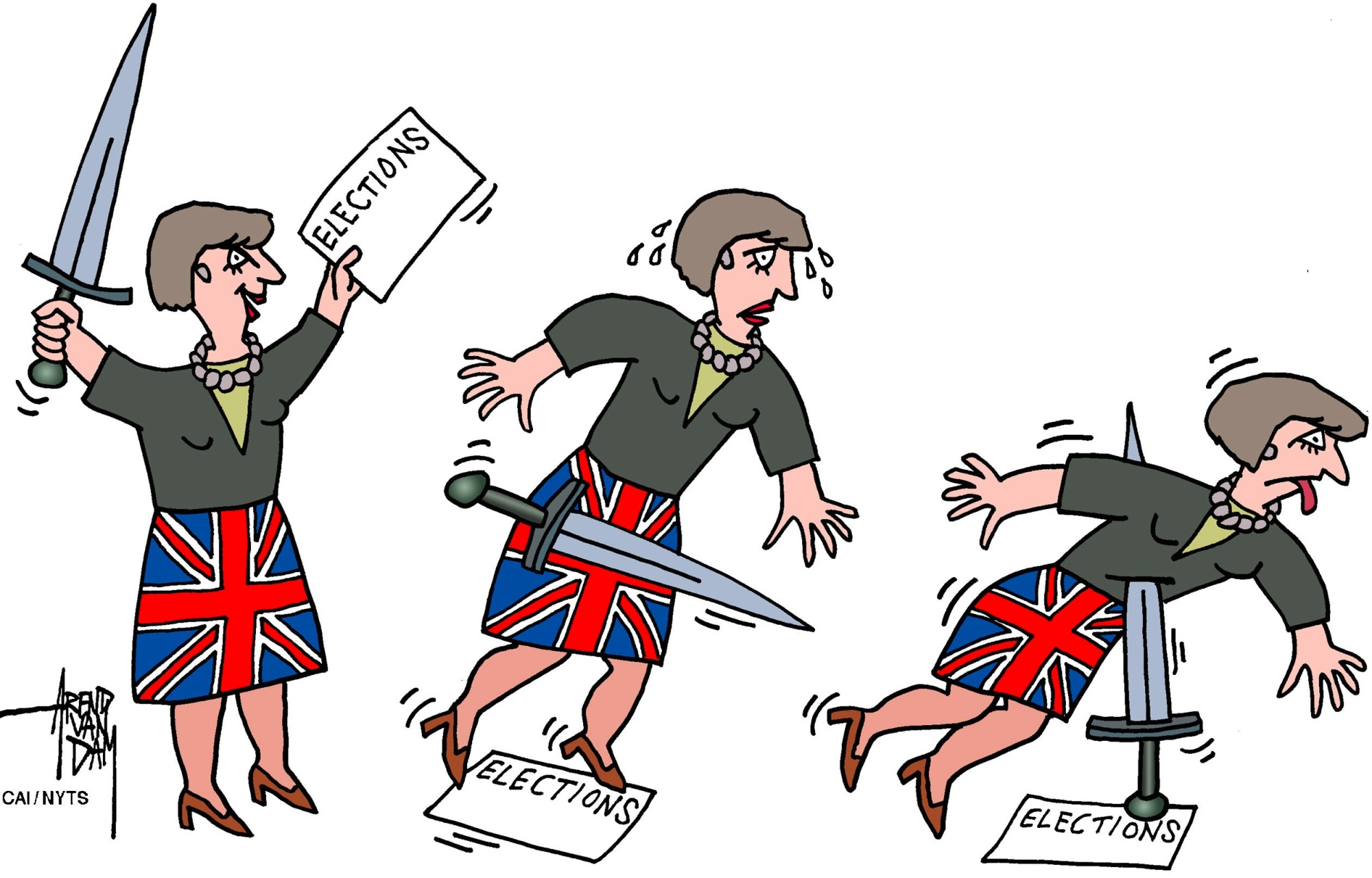In the British general election held Thursday, no party won an overall majority and Britain now has what is termed a hung parliament. The Tories (Conservatives) won the most seats with 318 in a House of Commons of 650, thus falling 8 seats short of a majority. They lost 12 seats. The Labour party came second with 262 seats, gaining 30. The Scottish Nationalists remained the strongest party in Scotland but lost 21 seats to the other main parties opposed to a further independence referendum. The Liberal Democrats won 12 seats and over two million votes. The UK independence Party failed to win a single seat although they were backed by nearly 600,000 voters.
Prime Minister Theresa May, who repeatedly said that she would not call a general election, did not have to call the general election. She had a small majority in the House of Commons and the opposition parties did not, as she claimed, threaten to stop the Brexit process under which Britain would leave the European Union in response to last year's referendum.
Why did she change her mind? Opinion polls suggested that she had a huge lead of some 20 points over Jeremy Corbyn, the leader of the Labour Party, whose left-wing policies and shambolic leadership had alienated a majority in his own party in the House of Commons. Now, May thought, was her chance to establish herself as the true heir to Margaret Thatcher and show that she alone could unify the Tory party under strong leadership. She gambled and lost.



